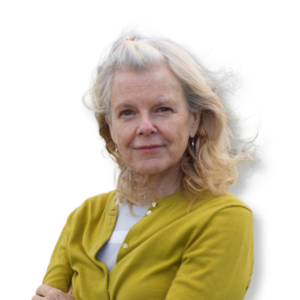
Ep 170 | Kristine Tompkins
Kristine Tompkins – Rewilding 15 Million Acres: Why True Wealth Means More Than Money
Summary
While the wealth of the world’s richest individuals continues to accumulate year after year, funding billions into AI, technology, and innovation, our true wealth—the planet’s natural ecosystems—receives only a fraction of the funding needed for restoration and protection. What can we learn from those rare individuals who have dedicated their lives to conserving and rewilding the Earth, choosing to invest in nature rather than the next market breakthrough?
Today Nate is joined by conservationist Kristine Tompkins, to discuss her decades of work on conservation initiatives in South America, the value of personal responsibility, and how she has cultivated a way of living without fear in taking on unprecedented environmental challenges. Kristine also reflects on the limitations of money as a metric for success and fulfillment, advocating instead for using wealth towards bettering the ecological state of our planet and rediscovering the joy of connecting with humanity’s place in nature.
How can we, as individuals, ‘earn’ hope for the future of our planet through engaging in conservation work? What can be learned from upending industrial norms to restore a personal relationship with the natural world? Finally, how can embracing individual responsibility lead us away from passive activism to usher in active and meaningful work in service of all life on Earth?
About Kristine Tompkins
Kristine Tompkins is an American conservationist and the president and co-founder of Tompkins Conservation, as well as the former CEO of Patagonia. For nearly thirty years, alongside her late husband Doug Tompkins, she has committed her career to protecting and restoring wild beauty and biodiversity by creating national parks, restoring wildlife, inspiring activism, and fostering economic vitality as a result of conservation.
As the president of Tompkins Conservation, Kristine Tompkins oversees a multitude of projects rewilding the Americas. Having protected approximately 15 million acres of parklands in Chile and Argentina through Tompkins Conservation and its partners, Kristine and Douglas Tompkins are considered some of the most successful national park-oriented philanthropists in history.
(Photography Credits for Kristine Tompkins’ Headshot: Adam Amengual)
In French, we have a motto that says that a simple drawing is often better than a long explanation. Jean-Marc Jancovici Carbone 4 President
That’s very understandable because with left atmosphere thinking, one of the problems is that you see everything as a series of problems that must have solutions. Iain McGilchrist Neuroscientist and Philosopher
We can’t have hundreds and hundreds of real relationships that are healthy because that requires time and effort and full attention and awareness of being in real relationship and conversation with the other human. Nate Hagens Director of ISEOF
This is the crux of the whole problem. Individual parts of nature are more valuable than the biocomplexity of nature. Thomas Crowther Founder Restor
Show Notes & Links to Learn More
Download transcript00:00 – Kristine Tompkins, Tompkins Conservation, Documentary on Tompkins Work
00:45 – Douglas Tompkins
03:17 – Patagonia Company
03:48 – Yvon Chouinard
13:25 – 1 billion humans live an ‘industrial lifestyle’
16:50 – Deep Ecology
18:56 – Renewables acting as additive to the fossil industry
19:26 – Biodiversity loss, 6th Mass Extinction, Gill Oxygen Limitation Theory, Increase in wildfires
21:10 – Paris Agreement, Global Climate Agreements: Successes and Failures
22:52 – Wes Carter, Atlantic Packaging
24:45 – Historical influence of the wealthy on politics in the United States
27:42 – Hague Courts
28:15 – Pella Thiel, Rights of Nature, TGS Episode and Reality Roundtable
33:18 – Black Swans
33:40 – Berlin Wall, how it came down
40:24 – People who see altruistic acts are more likely to do altruistic acts themselves
42:15 – Land Trusts
43:45 – Randy Hayes, Rainforest Action Network
44:03 – Rewilding
44:18 – Ibera Wetlands
45:00 – Yellowstone wolves and bison
45:58 – Tompkins Conservation Rewilding Work
47:03 – The importance of predator species in ecosystems
47:42 – Capybaras
49:31 – Pleistocene, Predators
49:41 – Evidence that Clovis people hunted North American megafauna to extinction
50:05 – Arne Naess
54:07 – DJ White, TGS Episode and Roundtable
55:37 – Rewilding Projects
1:00:15 – Jeremy Grantham, TGS Episode 1 & 2
1:04:48 – Andrew Carnegie, How Andrew Carnegie Turned His Fortune Into A Library Legacy
1:08:51 – The Vietnam War Protests, Culture change impacts of the 60s and 70s







